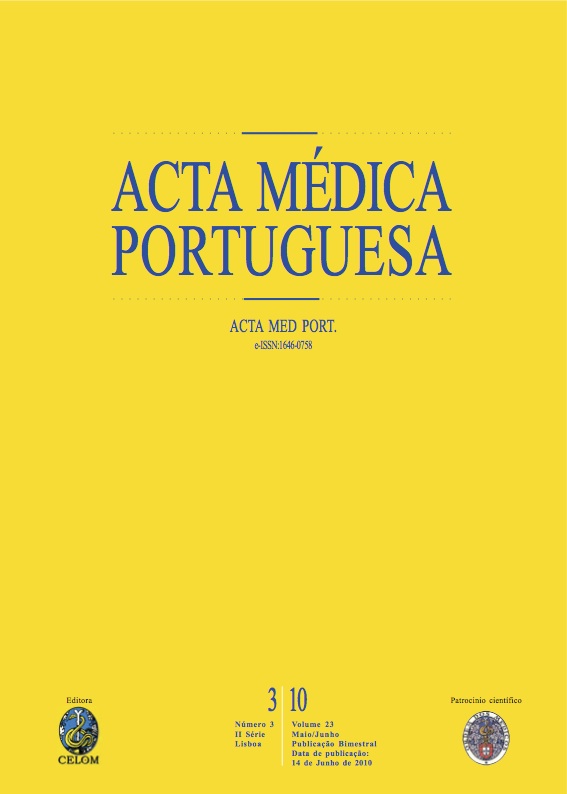Contagion - some notes on the epistemology and the ethics of public health.
DOI:
https://doi.org/10.20344/amp.622Abstract
European Medical thought on epidemics - ranging from the opposition clean/dirty, pollution, malaria, pestilential seeds to 19th century microbiology - has always been ruled by figures such as the miasma, the repulsive, the excrement, the filth, the corrupt, the contagion. Theoretically framed, in general, by Foucault's ideas, this research focuses on some aspects of the historical epistemology and ethics of Public Health. Based on the history of Tuberculosis (TB) management in Portugal and, more briefly, on the flu pandemics, we thematize aspects of Biopolitics, namely, the disciplinary power and the processes of indifferentiation and reification. We will focus on the disjunction between contamination and transmission, on the systems of inclusion and exclusion and on the differences between uncertainty, risk, danger, precaution and prevention, aiming to contribute to the public debate on an ethic of precaution. It will be attested that the praxis of Public Health inevitably calls together, at various levels, the old categories of medical ethos, among which are the catharsis, the crisis, and the kairos.Downloads
Downloads
How to Cite
Issue
Section
License
All the articles published in the AMP are open access and comply with the requirements of funding agencies or academic institutions. The AMP is governed by the terms of the Creative Commons ‘Attribution – Non-Commercial Use - (CC-BY-NC)’ license, regarding the use by third parties.
It is the author’s responsibility to obtain approval for the reproduction of figures, tables, etc. from other publications.
Upon acceptance of an article for publication, the authors will be asked to complete the ICMJE “Copyright Liability and Copyright Sharing Statement “(http://www.actamedicaportuguesa.com/info/AMP-NormasPublicacao.pdf) and the “Declaration of Potential Conflicts of Interest” (http:// www.icmje.org/conflicts-of-interest). An e-mail will be sent to the corresponding author to acknowledge receipt of the manuscript.
After publication, the authors are authorised to make their articles available in repositories of their institutions of origin, as long as they always mention where they were published and according to the Creative Commons license.









